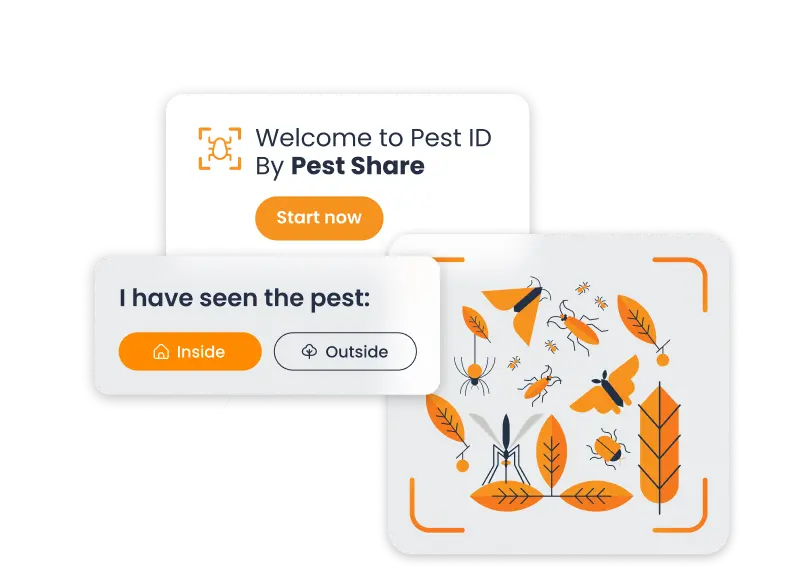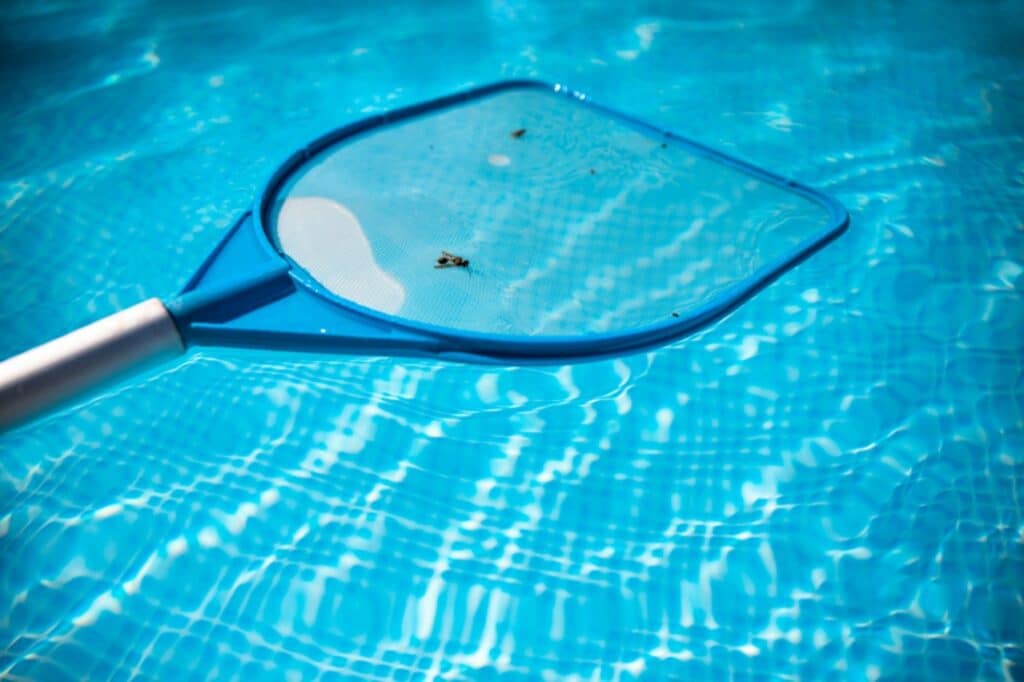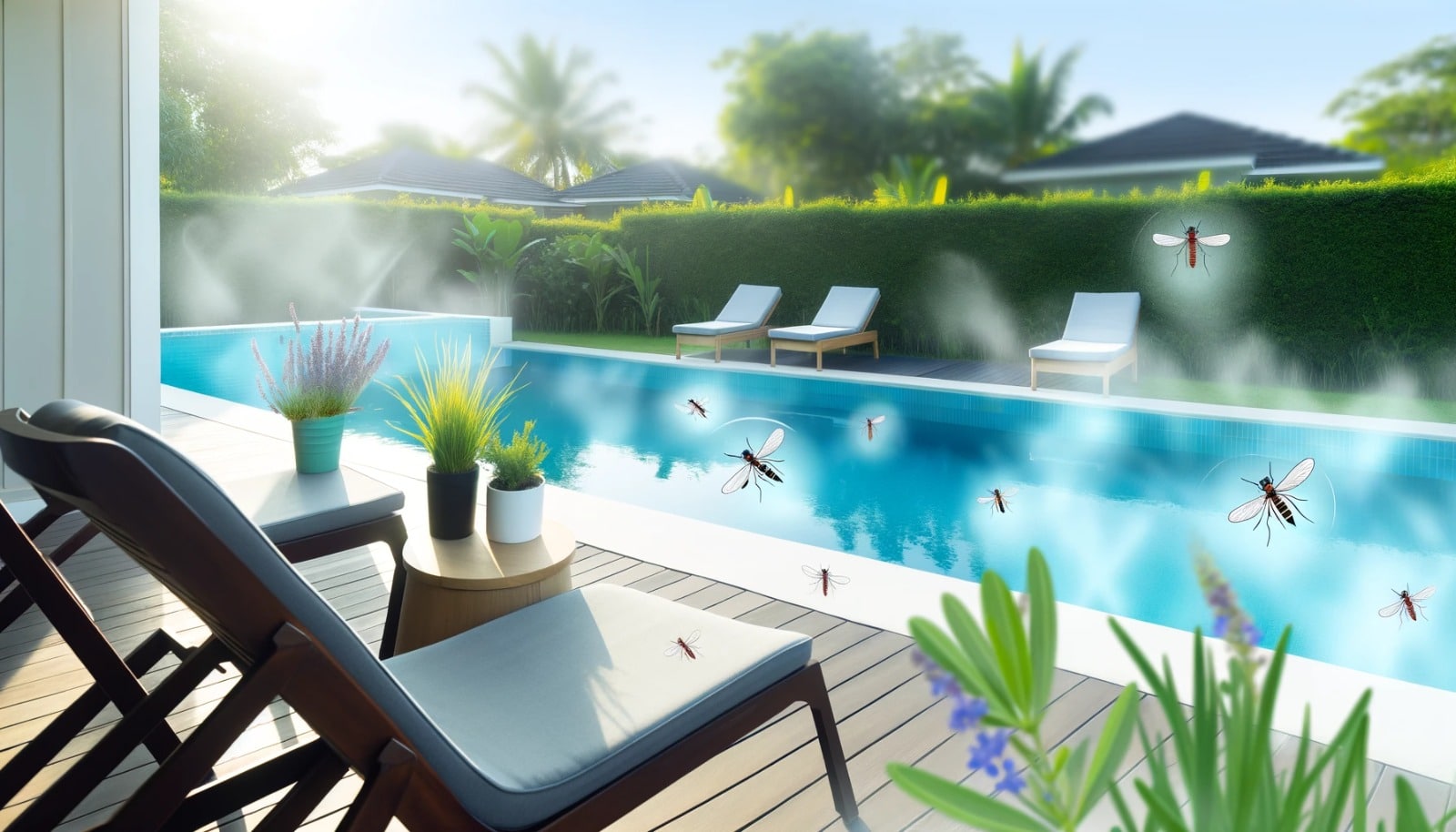For property managers, maintaining a comfortable and safe pool area is a significant responsibility, with mosquito control being a crucial aspect of this task. Mosquitoes are not just a nuisance; they are known carriers of various diseases, posing health risks to residents and guests. Effective mosquito control around pools is essential to ensure a pleasant and safe environment. This guide provides property managers with comprehensive strategies to manage mosquitoes, focusing on prevention, identification, and eradication techniques.
Understanding Mosquitoes and Their Breeding Habits
Mosquitoes have a life cycle that includes four stages: egg, larva, pupa, and adult. Understanding this cycle is key to effective control. Mosquitoes lay their eggs in stagnant water, where they hatch into larvae. The larvae then develop into pupae before emerging as adult mosquitoes. This cycle can be surprisingly quick, taking as little as a week in ideal conditions.
Pools, particularly those not regularly maintained, can inadvertently become prime breeding grounds for mosquitoes. Factors such as standing water, lack of circulation, and inadequate chlorination create a hospitable environment for mosquitoes to lay eggs and for larvae to thrive. Identifying potential breeding sites around pool areas is the first step in controlling the mosquito population.

Fast Fixes. Happy Residents.
Kill Mosquitoes in Pool: Effective Strategies
To effectively reduce the mosquito population around pool areas, it’s crucial to target adult mosquitoes. Various strategies can be employed to achieve this. One effective method is the use of mosquito traps that attract and capture adult mosquitoes. These traps work by emitting substances that mosquitoes find attractive, such as carbon dioxide or heat.
Another strategy is to use insecticides that are specifically designed for outdoor use around pools. When choosing insecticides, it’s important to consider their safety around water and their environmental impact. Natural alternatives, such as essential oil-based repellents, can also be effective in deterring adult mosquitoes from pool areas.
In addition to these methods, creating an environment that is less attractive to mosquitoes can help reduce their presence. This includes maintaining a clean and tidy pool area, with no standing water in containers or puddles where mosquitoes can breed. Regularly cleaning and chlorinating the pool, ensuring proper water circulation, and maintaining the pool’s filtration system are all critical in keeping mosquitoes at bay.
By implementing these strategies, property managers can significantly reduce the presence of adult mosquitoes around pool areas, enhancing the safety and enjoyment of these spaces for everyone.
Does Chlorine Kill Mosquito Larvae?
A common question in pool maintenance is the effectiveness of chlorine in killing mosquito larvae. Chlorine, a chemical commonly used to sanitise pools, can indeed be lethal to mosquito larvae when used in the right concentration. However, merely adding chlorine to pool water is not always a guarantee of eradicating these pests.
The effectiveness of chlorine against mosquito larvae depends on maintaining the correct chlorine levels and pH balance in the pool. Mosquito larvae are more likely to survive in pools with low or irregular chlorine levels. Therefore, regular testing and adjustment of the pool’s chlorine and pH levels are crucial in ensuring an environment that is inhospitable to these pests.
It’s also important to note that while chlorine can be effective against larvae in the water, it does not prevent mosquitoes from laying eggs around the pool area. Hence, chlorine treatment should be part of a broader mosquito control strategy that includes prevention and eradication of breeding sites.
Will Bleach Kill Mosquito Larvae? Exploring an Alternative Solution
While bleach is not commonly thought of as a mosquito control solution, it can be an effective option in some situations. Bleach works by breaking down organic material and creating an environment that is toxic to mosquito larvae. However, using bleach in pool water must be done with caution, as it can disrupt the pool’s chemical balance and may be unsafe for swimmers. If you’re considering bleach as a treatment for stagnant water outside the pool, such as in nearby buckets or drains, it can be a helpful addition to your mosquito control toolkit. Just ensure proper dilution to avoid harming nearby plants or wildlife. For pool-specific issues, sticking to chlorine and pool-safe larvicides is a more reliable choice.
Pool Larvae: Identification and Control
Identifying and controlling mosquito larvae in pools is an essential step in mosquito management. Mosquito larvae, commonly referred to as “wrigglers,” are visible to the naked eye. They are typically found floating near the surface of stagnant water and have a distinctive wriggling movement.
To control mosquito larvae, the first step is eliminating potential breeding sites. This includes maintaining a clean pool with proper circulation and filtration. Larvae thrive in stagnant water, so ensuring that the pool’s pump and filtration systems are functioning correctly is vital.
Besides chemical treatments like chlorination, biological control methods can also be effective. Introducing natural predators of mosquito larvae, such as certain fish species, can be a natural way to keep the larvae population in check. However, this method should be considered carefully depending on the pool’s ecosystem and usage.
How to Kill Mosquito Larvae in Pool

When dealing with mosquito larvae in pools, there are several effective methods to eradicate them. In addition to maintaining proper chlorine levels, there are specific larvicides available that can be safely used in pool water. These products target mosquito larvae specifically without harming the pool’s overall water quality or safety for swimmers.
For more natural approaches, products containing Bacillus thuringiensis israelensis (BTI), a bacteria that is toxic to mosquito larvae but safe for humans and other wildlife, can be a viable option. BTI can be found in dunks or granular forms and is easy to apply directly to the pool water.
Another method involves the use of oils or films that spread across the water’s surface, creating a barrier that prevents larvae from accessing air, effectively suffocating them. However, this method should be used cautiously as it can also affect water quality and may not be suitable for pools used for swimming.
Implementing these larvicide techniques requires careful consideration of the product’s compatibility with pool water and its safety for humans and pets. Regular monitoring and treatment are necessary to maintain an effective control over mosquito larvae in pools.
Mosquito Eggs in Pool: Prevention and Removal
Preventing mosquito eggs from being laid in pools is a crucial aspect of poolside pest control. Mosquitoes are attracted to stagnant water as a breeding site, so ensuring your pool is not conducive to this is key. Regularly circulating and filtering pool water makes the environment less attractive for mosquitoes to lay eggs. Covering the pool when not in use can also prevent access for mosquitoes looking to lay eggs.
In the event that mosquito eggs are found in or around the pool, immediate removal is essential. Mosquito eggs are typically laid in clusters on the surface of still water and may appear as tiny floating specks. Skimming the pool regularly can help remove eggs and larvae before they have a chance to develop.
Another preventative measure includes treating areas around the pool where water may accumulate, such as pool covers, gutters, and plant saucers, as these can also become breeding grounds for mosquitoes.
Regular Pool Maintenance and Monitoring
Ongoing pool maintenance and monitoring are essential in keeping mosquitoes at bay. Regular cleaning and maintenance of the pool, including checking and repairing any leaks, ensuring the filtration system is functioning properly, and maintaining the correct chemical balance, are all vital practices.
Monitoring involves not just looking at the pool water itself but also the surrounding areas. Keep the poolside area free of standing water and debris where mosquitoes can breed or rest. Encourage pool users to use towels and swimwear that are not left lying around as these can retain moisture and attract mosquitoes.
Creating a maintenance schedule and adhering to it can significantly reduce the likelihood of mosquito infestations and ensure a more enjoyable poolside experience for everyone.
Conclusion
Managing mosquitoes in pool areas requires a multifaceted approach that includes maintaining proper water treatment, eliminating potential breeding sites, and using targeted control methods. By staying vigilant and proactive in these practices, property managers can effectively keep mosquitoes at bay, ensuring a pleasant and safe environment for pool users.
For more comprehensive solutions or challenging infestations, don’t hesitate to reach out to pest control professionals like Pest Share. They can provide expert advice and effective treatments to address any pest control needs around your pool area. Keep your poolside mosquito-free and enjoy the peace of mind that comes with effective pest management.





